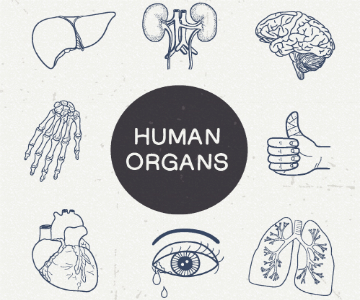National Organ Donor Month
August is Organ Donor Awareness Month, we share some facts about organ donation so that you can make an informed decision about whether or not to become a life-saving donor.

Organ transplants are undertaken in both government and private hospitals in the Western Cape, and currently heart, kidney, cornea and liver transplants are carried out at the following government hospitals:
- Groote Schuur Hospital,
- the Red Cross Children's Hospital,
- Tygerberg Hospital, and
- George Hospital.
7 Questions about organ donation answered
- Who can be an organ / tissue donor?
You can become a donor if:
- you’re under the age 70,
- you’re in good health, and
- if you’re clear of any predefined chronic diseases that might cause further health complications for the recipient(s).
- Can I be a donor if I have an existing medical condition?
Having a predefined medical condition doesn’t necessarily prevent a person from becoming an organ donor. The decision about which organs can be transplanted will be determined by the doctors.
- Can I donate an organ / tissue while I am alive?
Yes, in some cases. Live donations, such as a kidney are often done between family members, because the blood groups and tissue types are more compatible to ensure a high success rate.
- Which organs can be transplanted?
Your heart, liver and pancreas can save 3 lives and your kidneys and lungs can help up to 4 people.
- Which tissues can be transplanted?
You can help up to 50 people by donating your corneas, skin, bone and heart valves.

- Can I agree to donate only some organs or tissue and not others?
Yes, please inform your family which organs/tissue you don’t wish to donate.
- How long after death do the organs / tissue have to be removed?
It’s essential that organs / tissue are removed as soon as possible after brain death in order to ensure successful transplantation. Brain death has to be certified by two independent doctors.
If you want to find out more about organ donation, visit the frequently asked questions (FAQs) section on the website of the Organ Donation Foundation.
Registering as a donor
You can register as an organ donor by
- contacting the Organ Donor Foundation toll-free line at 0800 22 66 11, or
- registering online.
Once you’ve successfully registered the Organ Donor Foundation will send you an organ donor card to carry in your wallet as well as stickers to stick on your ID book and driver’s licence to make your intentions known in case of an emergency.
Giving consent
The most important thing is to talk to your family. Inform them of your wish to become an organ donor, as your organs cannot be procured for transplantation without consent from your next of kin.
Parents need to give written consent if they give permission for their babies, toddlers and teenagers younger than 18 to be organ donors.
Watch the Organ Donor Foundation television advertisement
Other important links:


